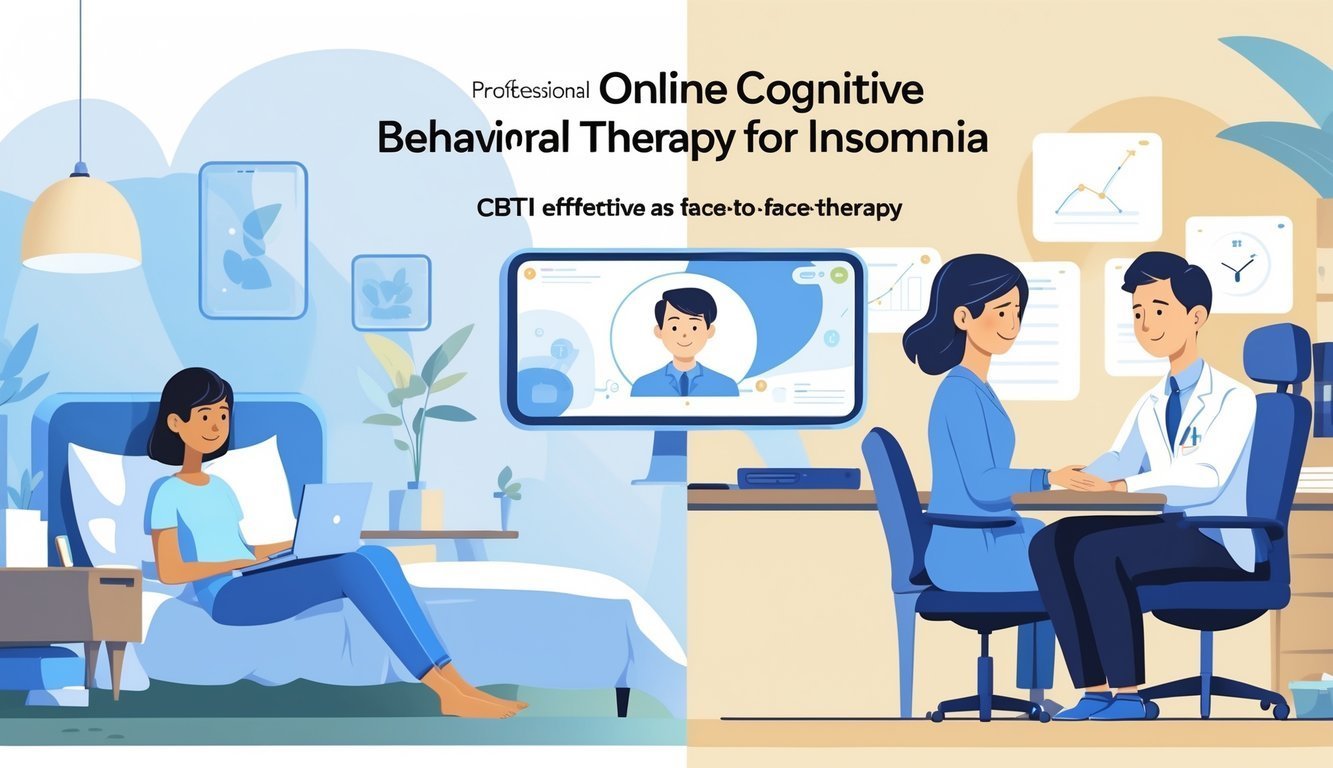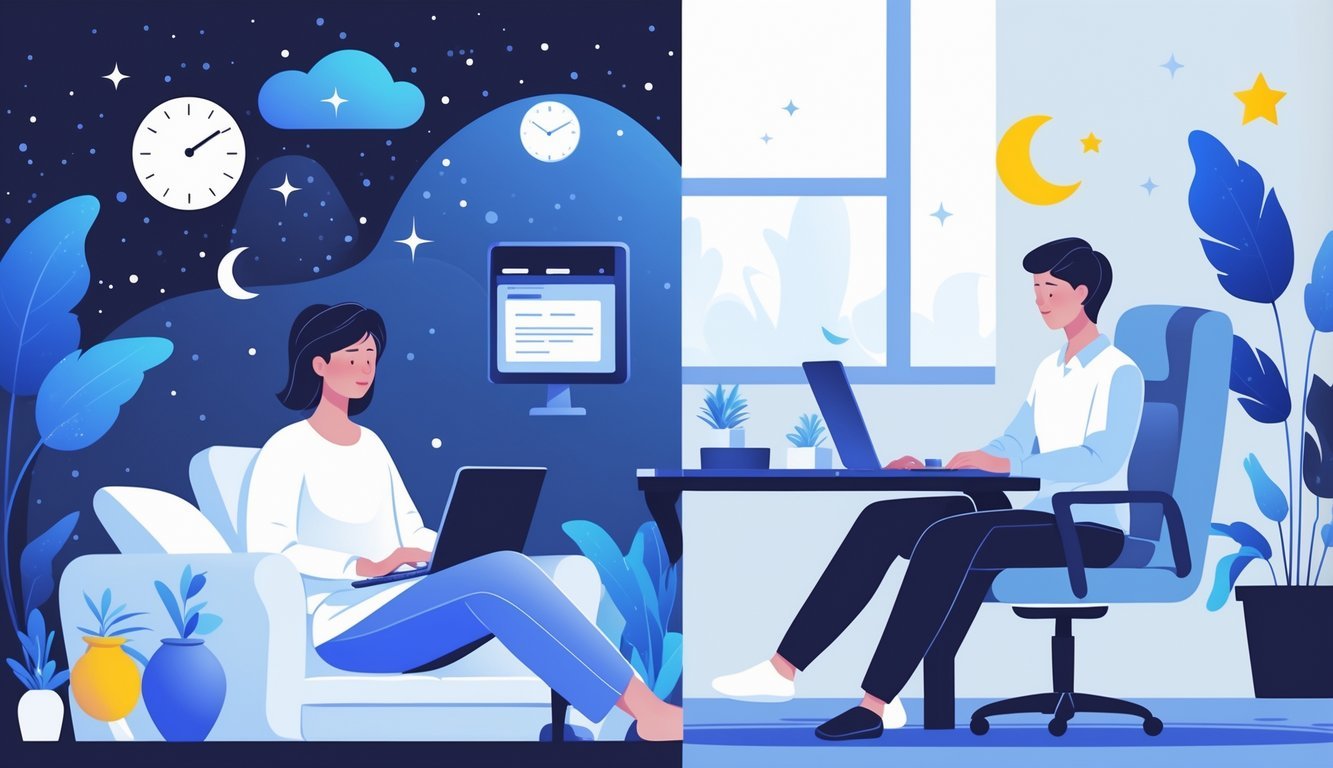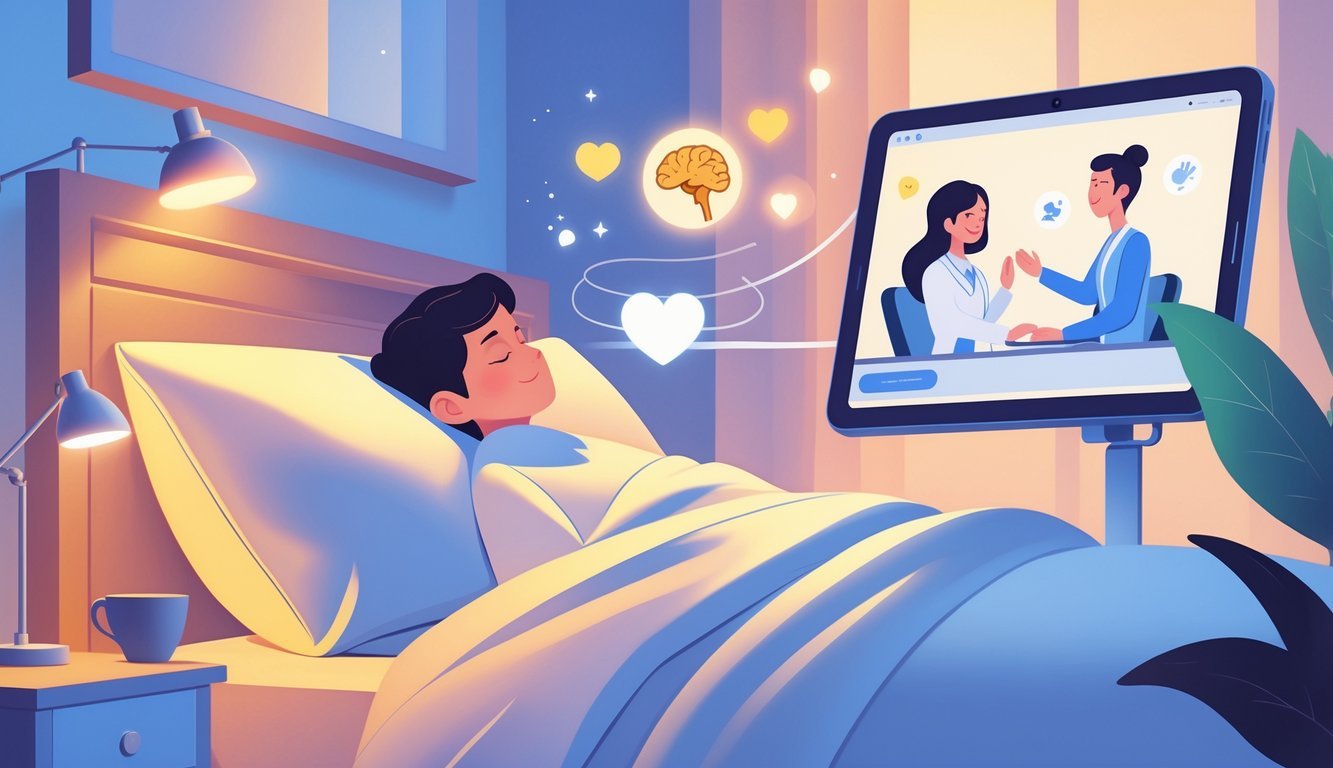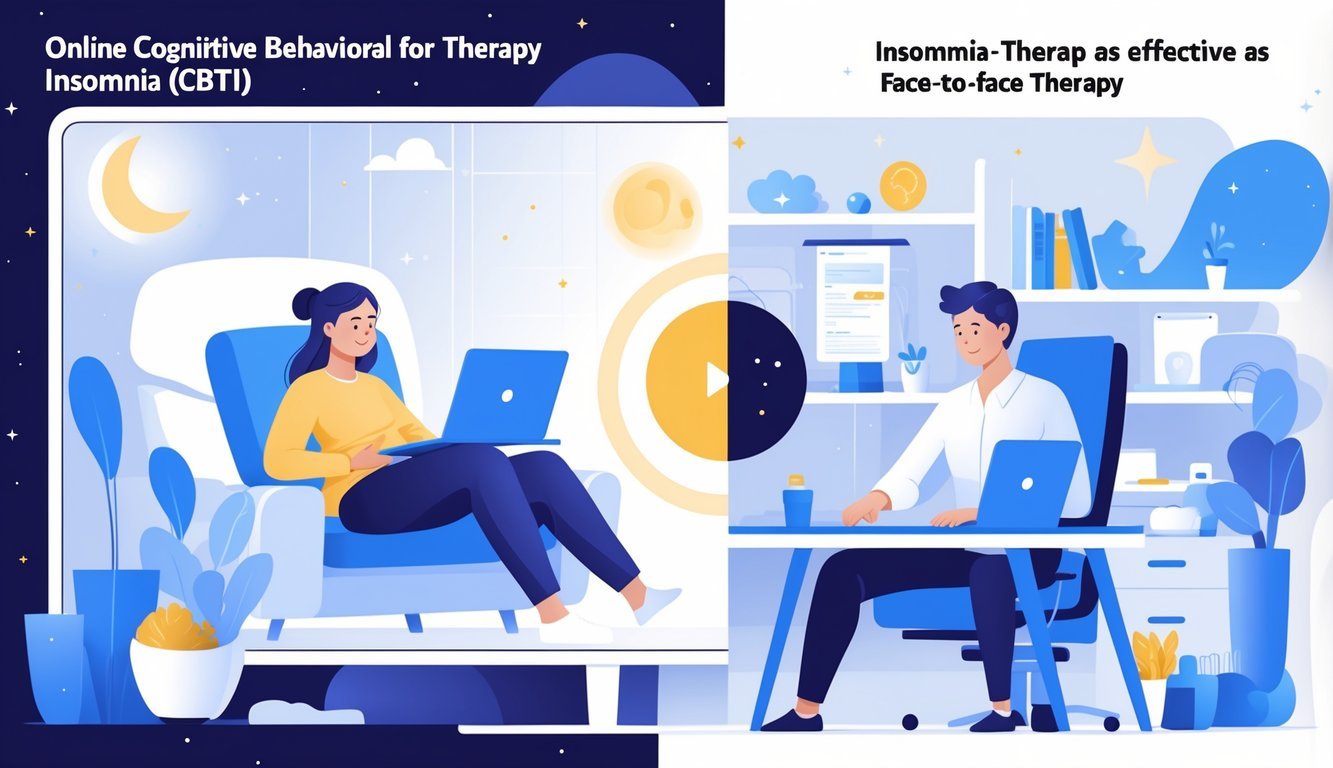PsychNewsDaily Publishers
100 Summit Drive
Burlington, MA, 01803
Telephone: (320) 349-2484
PsychNewsDaily Publishers
100 Summit Drive
Burlington, MA, 01803
Telephone: (320) 349-2484
Online cognitive behavioral therapy for insomnia effectively improves sleep quality, reduces insomnia severity, and offers convenient treatment options for individuals with busy lifestyles or distance barriers.

Online cognitive behavioral therapy for insomnia (CBTI) keeps gaining traction, especially if getting to a therapist just isn’t practical. Maybe you’re still skeptical—does the online version really match up to in-person sessions? Turns out, online CBTI helps people sleep better just as effectively as meeting with a therapist in person.
You can get quality insomnia help from your living room. Online therapy suits folks with packed schedules, those far from clinics, or anyone who just prefers their own couch. Plenty of people say online CBTI helps them fall asleep quicker and stay asleep longer.

Online cognitive behavioral therapy for insomnia (CBT-I) helps you manage sleep issues as well as traditional in-person therapy. Studies have found both methods improve sleep efficiency and reduce insomnia severity.
You’ll see how the two treatments stack up, what the research says, and how experts measure sleep improvements.
With online CBT-I, you get the same core benefits as face-to-face therapy. Telemedicine brings cognitive behavioral therapy to you, so you don’t have to go to a clinic.
Research confirms online and face-to-face CBT-I both ease insomnia symptoms. The bond you form with your therapist—what they call the therapeutic alliance—remains strong whether you meet online or in person.
Some research hints that face-to-face therapy might have a tiny edge in reducing insomnia severity, but the difference is barely noticeable. If you struggle with getting to appointments, online CBT-I really makes life easier.
Randomized controlled trials (RCTs) give us reliable answers about CBT-I effectiveness. These studies split people into online or face-to-face groups to compare results.
Multiple RCTs show that online CBT-I leads to sleep efficiency improvements that match face-to-face treatment. Shift workers and people with chronic insomnia have seen real results with online programs.
One study even found that the benefits of online CBT-I last over time, without extra side effects. Researchers also note that online formats reach more people, including those who might skip traditional therapy.
Researchers track how well CBT-I works by measuring sleep outcomes and insomnia severity. They often use the Insomnia Severity Index (ISI) to score symptoms.
Both online and face-to-face CBT-I lower ISI scores. They improve sleep efficiency, meaning you spend more time asleep while in bed.
Other measures include total sleep time and how long it takes you to fall asleep. When you check your sleep regularly, you can see progress after treatment. The aim—whether online or in person—is to help you sleep better and reduce insomnia’s grip.

When you use cognitive behavioral therapy (CBT-I) for insomnia, you often notice more than better sleep. Improvements in mood, energy, and overall mental health can follow. Both online and face-to-face CBT-I can deliver these benefits.
If you deal with depression or anxiety, CBT-I can help ease those symptoms. Insomnia tends to make these issues worse.
Treating your sleep problems can lower depression scores, like on the Beck Depression Inventory. Online CBT-I works even if you feel anxious or stressed. You’ll learn skills to manage the thoughts and feelings that keep you up at night.
This support helps you feel more balanced, and you might not need extra medication.
Better sleep means you can focus better and handle daily tasks with more energy. After CBT-I, many people report fewer sleepy moments and less trouble staying alert.
You’ll probably miss work or school less often, which boosts productivity. These gains tend to stick around long after therapy ends.
Online CBT-I programs let you work on sleep in a safe, private way—no need to see a therapist in person. You can use self-help tools and go at your own pace.
This makes treatment realistic for busy folks or anyone who can’t get to a clinic. Since online CBT-I skips medication, you avoid common side effects. You also learn healthy habits that can keep your sleep on track for the long haul.
Sleep medications might help in the short term, but they can cause side effects like dizziness, memory issues, or drowsiness. They don’t really solve insomnia’s root causes either.
CBT-I targets the thoughts and behaviors that keep you awake. It carries fewer risks and tends to offer longer-lasting results. Studies show digital CBT-I outperforms medication alone for lasting sleep improvements. For most people, therapy is the safer, smarter bet.

You’ll likely get similar sleep improvements from online CBT-I as you would from face-to-face therapy. It’s also super convenient and comes with helpful digital tools. Many people notice changes in just a few weeks.
The main CBT-I methods focus on shifting habits and thoughts that mess with your sleep. If anxiety causes your insomnia, you’ll find targeted techniques to help with that, too.
Yes, online CBT-I can boost sleep quality just as much as in-person therapy. Studies haven’t found any big differences in the outcomes.
Online CBT-I lets you tackle sleep problems from home, so you skip the commute. It fits around your schedule, and digital tools walk you through the process.
Most people start sleeping better within 3 to 6 weeks if they stick with the program. Results can vary, but that’s the typical range.
Definitely. Online CBT-I often uses sleep diaries, interactive lessons, and reminders. These help you track progress and stay on course.
CBT-I relies on techniques like sleep restriction, stimulus control, and cognitive restructuring. These help you change your sleep habits and ease negative thoughts about sleep.
Absolutely, CBT-I can make a real difference for insomnia that’s tied to anxiety. It teaches you how to manage worrying thoughts.
You’ll learn to break the frustrating cycle of anxiety and poor sleep. CBT-I uses calming strategies and encourages small behavior changes that actually stick.